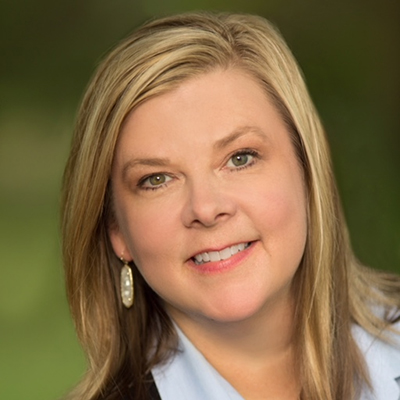
Teacher Feature: Michelle Rahn
Wednesday, April 3, 2019
Michelle Rahn graduated from Oklahoma State University in 2008 with a Bachelor of Science in Elementary Education and a Master of Science in Teaching, Learning and Leadership, option in mathematics and science education. An 11-year teaching veteran, Rahn currently teaches science and gifted science at Will Rogers Junior High School in Claremore, Oklahoma. Rahn also coaches an after-school science, technology, engineering and math (STEM) club.

Why did you decide to become an educator?
I decided to become an educator as a second career. After 20 years of owning and operating
a small business with my husband, my love for children and learning drew me into the
education profession. I taught children in an informal environment most of my adult
life, teaching Sunday School, volunteering at my children’s school and directing a
camp. I was craving a career change that would give me more purpose and meaning to
my work. Going back to school to become a teacher seemed like a natural choice.
What intrigues you about teaching science?
Nurturing that natural excitement of wonder and curiosity in my students as they explore
their world. I love to create inquiry-based learning investigations that allow students
to think critically and engage in meaningful learning. Science is the great equalizer;
children of every ability can ask questions, make observations and participate in
hands-on investigations to gain understanding of the world around them.
How has your graduate studies experience at Oklahoma State helped shape your approach
to teaching?
Since making the commitment to earn my master’s degree at OSU, my teaching has undergone
a complete paradigm shift for the betterment of my students. I use research-based
strategies that incorporate my new content knowledge to enhance my students’ learning
experience. I have gained confidence in leaning on my colleagues and serving on committees
that influence the policy of my school and district. The attention and support I’ve
received from my professors and fellow students has enabled me to become a better
teacher and leader.
What brings you joy in your work?
When I witness the energy and excitement that consumes my classroom when all my students
are engaged in a lesson where they are discovering a new concept. Getting to know
my students and trying to figure out how to motivate them to love science like I do
makes me happy!
What are some of the “aha” moments you’ve had as an educator?
When my students see the interrelationship between mathematics and science. They are
always surprised when they realize we are using what they learned in math class to
illustrate data we collected during our science class. When I explain to them that
science is applied math, they understand the connection.
In 2016, you were awarded the Presidential Award for Excellence in Mathematics and
Science Teaching. What did that mean to you?
Winning that award was the most exciting thing that has ever happened in my career!
I was completely astounded and exhilarated when I found out I had won. The honor validates
my commitment to creating memorable and exciting learning opportunities for my students
and inspires me to continue to share my passion for teaching with other teachers.
I’m extremely grateful to all my students, parents, colleagues, family members and
community for their continued support throughout my years of teaching.
What do you think is important to share with education policy makers?
The importance of high quality teacher professional development. Every teacher should
have the opportunity to improve their craft through quality professional development
just like in the private business sector. It is also important to equip teachers with
the resources they need in the classroom to provide authentic learning experiences
for their students. Lastly, smaller class sizes are more conducive to learning, especially
when teaching higher cognitive demanding lessons. It’s imperative class sizes are
reduced and students receive the support they need from counselors, librarians and
special education paraprofessionals. Addressing these issues would allow teachers
to better serve their students.
MEDIA CONTACT: Rachel Eng |405-744-8320 |rachel.eng@okstate.edu
